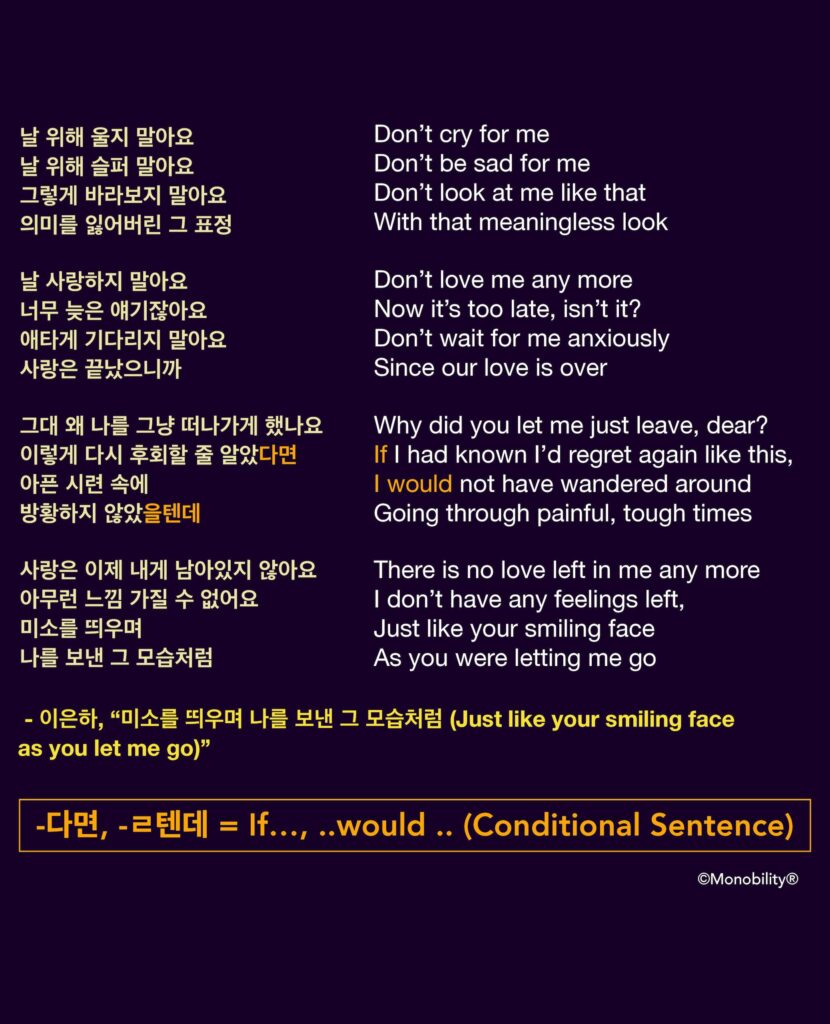Subjunctive (or conjunctive) mood is one of the features of European languages that often perplex Korean speakers. In Korean, there is no such thing as subjunctive. Koreans use specific, regular verb endings to show “unreal” situations where subjunctive mood would be used. For example, typical conditional sentences for unreal situations are structured as:
1) -다면 [Present] or –ㅆ다면 / -ㅆ더라면 [Past] for the “If” clause, and
2) the main clause simply ends with -ㄹ텐데 [Present] or –ㅆ을텐데 [Past].
- 사랑한다면 나를 보내지 않을텐데 = If you loved me, you would not let me go.
- 사랑했다면 나를 보내지 않았을텐데 = If you had loved me, you would not have let me go.
Again, these endings do NOT vary with 1st/2nd/3rd person or singular/plural/gender. 얼마나 쉬워. 누워서 떡 먹기네!

Check out our Facebook for much more:



